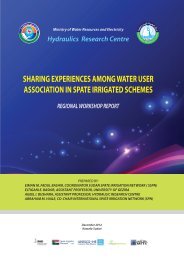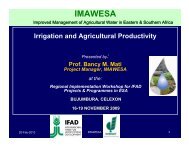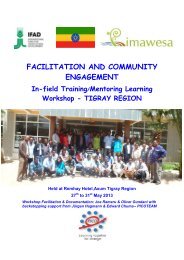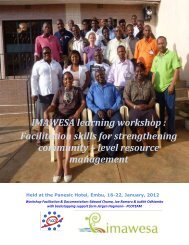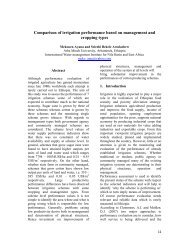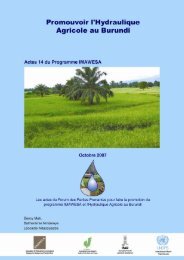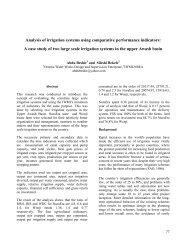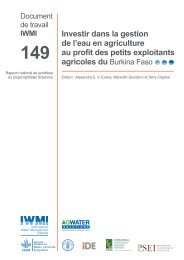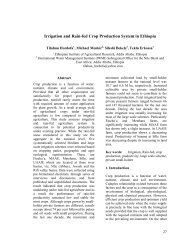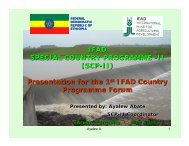Manual - Participatory rapid diagnosis and action ... - FAO.org
Manual - Participatory rapid diagnosis and action ... - FAO.org
Manual - Participatory rapid diagnosis and action ... - FAO.org
You also want an ePaper? Increase the reach of your titles
YUMPU automatically turns print PDFs into web optimized ePapers that Google loves.
36 Chapter 5. Using PRDA tools effectivelyDirecting the flow of the interview• Start with easy questions on facts <strong>and</strong> events. Leave talk aboutopinions, feelings or other sensitive issues near to the end so that therespondent feels more at ease.• Use simple wording.• Take your time, allow your respondents to answer completely beforemoving on.• Probe <strong>and</strong> explore important issues in detail using the six helpers:What? When? Where? Who? Why? How?• Avoid making assumptions.• Ask one question at a time.• Do not interrupt each other. Write down new questions that pop inyour mind to ask later on.• Conduct the interview in an informal manner.• Be open-minded, team members should not defend their disciplines.• Avoid leading questions or ones that can be answered with only yes orno.• Do not make value judgments or indicate belief by nodding or disbeliefby shaking your head.• In group interviews, try to prevent one person from dominating thediscussion by asking direct questions to silent people.• Respondents may not know the answer, be unwilling to reply or evenuntruthful. Judge the answer <strong>and</strong> do not believe everything. It mayhelp to ask questions in indirect ways (see example in Box 6). Crosscheckwhat people tell you (see below).Recording the interviewThe first output of semi-structured interviews is in note form. Accurate,detailed <strong>and</strong> complete recording is essential. It is therefore important that youtake notes for the record during interviews.Box 6. Examples of direct <strong>and</strong> indirect questionsExample of direct question: Are there conflicts about water distribution in thisirrigation scheme?Example of indirect questioning: When was the last dry year? Do you knowa farmer who had too little water during that year? What did he do to solve hisproblem? How did other farmers react to him? What was the role of the WUA?



